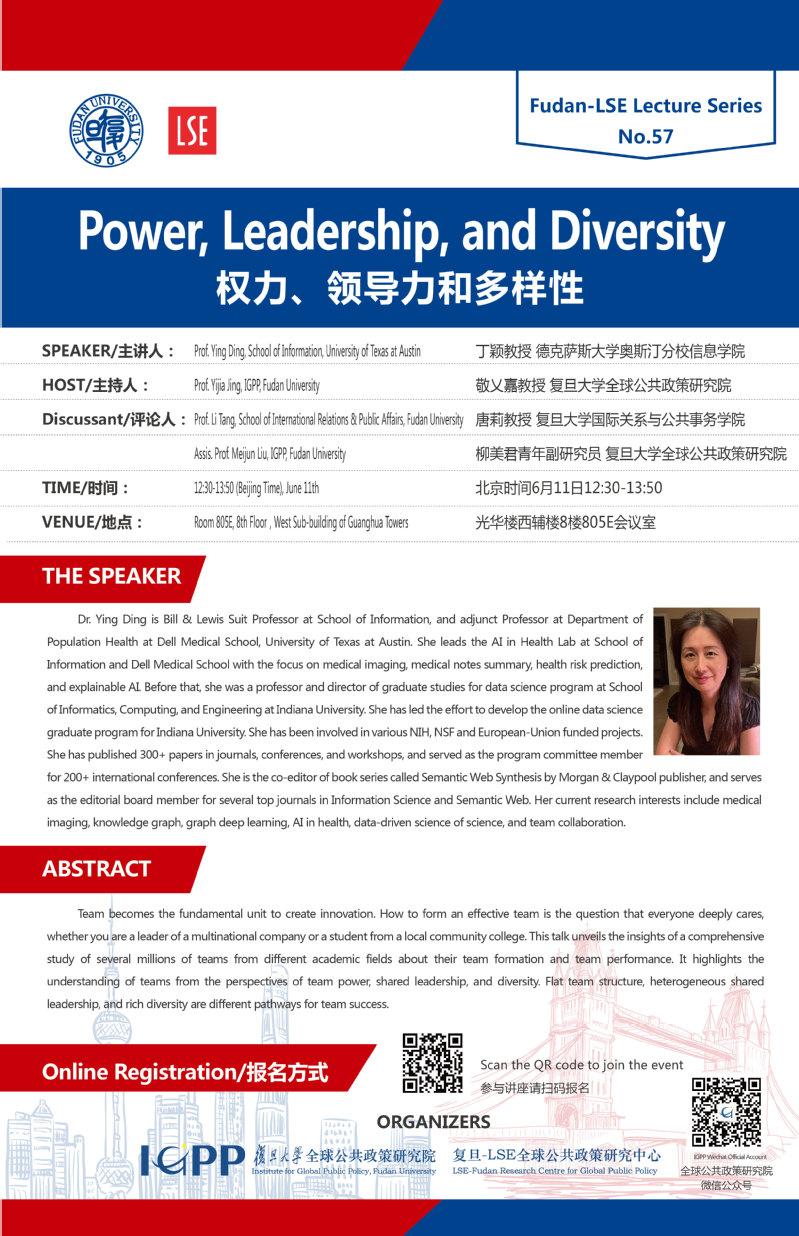
Fudan-LSE Lecture Series No.57
Title:
Power, Leadership, and Diversity
Speaker:
Prof. Ying Ding, School of Information, University of Texas at Austin
Discussant:
Prof. Li Tang, School of International Relations & Public Affairs, Fudan University
Assis. Prof. Meijun Liu, IGPP, Fudan University
Time:
12:30-13:50 (Beijing Time), June 11th
Venue:
Room 805E, 8thFloor,West Sub-building of Guanghua Towers
Please click the link to sign up
The Speaker:

Dr. Ying Ding is Bill & Lewis Suit Professor at School of Information, and adjunct Professor at Department of Population Health at Dell Medical School, University of Texas at Austin. She leads the AI in Health Lab at School of Information and Dell Medical School with the focus on medical imaging, medical notes summary, health risk prediction, and explainable AI. Before that, she was a professor and director of graduate studies for data science program at School of Informatics, Computing, and Engineering at Indiana University. She has led the effort to develop the online data science graduate program for Indiana University. She has been involved in various NIH, NSF and European-Union funded projects. She has published 300+ papers in journals, conferences, and workshops, and served as the program committee member for 200+ international conferences. She is the co-editor of book series called Semantic Web Synthesis by Morgan & Claypool publisher, and serves as the editorial board member for several top journals in Information Science and Semantic Web. Her current research interests include medical imaging, knowledge graph, graph deep learning, AI in health, data-driven science of science, and team collaboration.
Abstract:
Team becomes the fundamental unit to create innovation. How to form an effective team is the question that everyone deeply cares, whether you are a leader of a multinational company or a student from a local community college. This talk unveils the insights of a comprehensive study of several millions of teams from different academic fields about their team formation and team performance. It highlights the understanding of teams from the perspectives of team power, shared leadership, and diversity. Flat team structure, heterogeneous shared leadership, and rich diversity are different pathways for team success.





